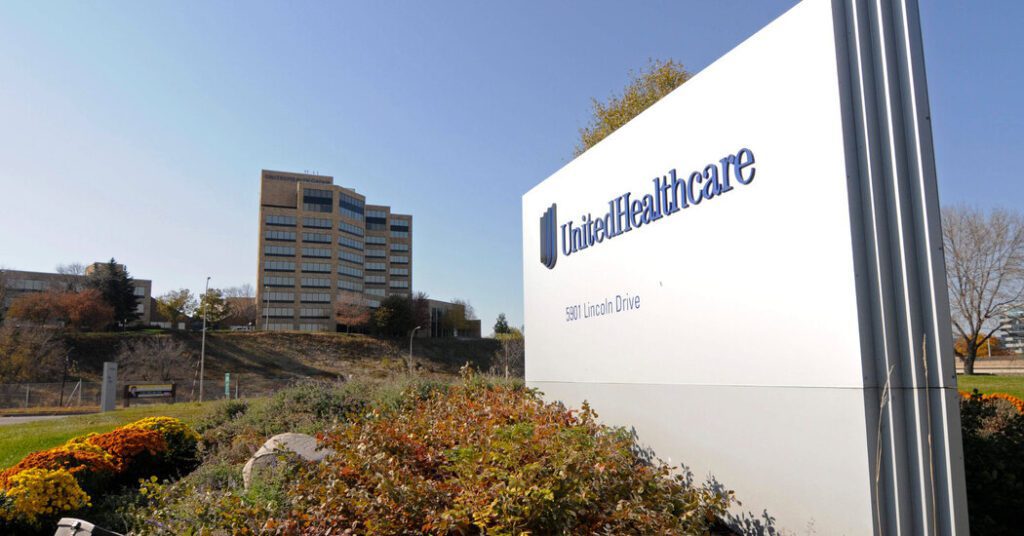UnitedHealth Group on Thursday reported lower-than-expected earnings for the past quarter, citing rising health care costs and pressure on its insurance division, as the company is still reeling from the shocking killing of a top executive last month. It was reported that it was below.
UnitedHealth Group's fourth-quarter revenue was $100.8 billion, lower than analysts expected, but still up 6.8% from the same period last year. The company's full-year sales for 2024 increased to $400.3 billion. UnitedHealthcare's insurance division had full-year sales of $298.2 billion, up 6% from 2023.
This result is the first for UnitedHealthcare since its chief executive officer, Brian Thompson, was shot and killed in front of a midtown Manhattan hotel.
The murder sparked public outrage at major health insurance companies over lack of access to care and denial of coverage and claims.
Some shareholders have called on UnitedHealth to issue a report on practices that “restrict or delay access to health care.”
UnitedHealth Group CEO Andrew Whitty said on a conference call with analysts Thursday that complaints about claims, such as delays in treatment and coverage, are “something we need to work hard to improve.” “This is an important area,” he said.
Mr. Thompson's successor has not yet been named. Mr. Whitty did not provide details about his hiring for the post or directly address recent shareholder campaigns.
But he and other executives discussed Thompson's death at the top of the conference call.
“He dedicated his time to helping the health care system work better for all the people we have the privilege of serving,” Witty said.
UnitedHealth's results, which disappointed Wall Street, in many ways reflected broader trends and lingering problems in the industry. U.S. health insurance companies have suffered a hit to their profits in recent quarters due to high medical costs and stricter government payment policies.
John Rex, the company's chief financial officer, pointed to lower federal rates in the payment system for the Medicare Advantage program, the private insurance arm of the federal insurance for people 65 and older. UnitedHealth has big business in these Medicare private plans.
Medicare Advantage performance has declined across the industry recently, due to rising medical costs for some seniors and regulatory changes aimed at preventing overbilling. .
Whitty also said there are costs associated with changes to Medicaid, the federal-state insurance program for the poor.
Analyst John Boylan said the company's medical expense ratio, a measure of the cost of providing care, exceeded expectations in the most recent quarter, prompting investors to suspect that cost-of-care increases could persist. He said there is a possibility that concerns about this may increase further. Worked at investment company Edward Jones.
However, UnitedHealth maintained its full-year 2025 outlook, unchanged by recent pressures. Morgan Stanley analysts said in a research note that the company has set “quite prudent targets” for this year.
“Overall, we believe United Airlines is well-positioned to successfully navigate the evolving healthcare environment due to its diversified business model,” Boylan said.
UnitedHealth stock fell 6% on Thursday as investors digested weaker-than-expected results. UnitedHealth's results, often seen as a bellwether for the overall industry's performance, pushed down the stock prices of its competitors, including CVS Health, the parent company of insurance company Aetna.
UnitedHealth Group also owns Optum Rx, one of the nation's largest pharmacy benefits managers, hired by employers and government programs to oversee prescription drug benefits.
OptumRx has come under intense regulatory scrutiny over concerns that it has raised drug prices to prioritize its own profits over those of patients, employers and taxpayers. Just this week, the Federal Trade Commission released a report detailing how PBMs may be driving up drug costs.
The agency found that Optum Rx and two other large benefit management companies, CVS Health's Caremark and Cigna's Express Scripts, lowered prices for generic drugs for cancer, heart disease and other conditions by as much as 1,000 percent of the national average cost. He criticized the company for raising prices.
UnitedHealth Group CEO Whitty defended Optum's practices, stressing that 98 percent of rebates were returned to customers. By 2028, all rebates will be passed on, he said. Whitty shifted the blame to drug companies, arguing that U.S. drug prices are “way too high compared to any other drug price in the world.”
“PBMs act on behalf of the ultimate payers: employers, unions, and the state,” Witty told analysts.
Whitty did not mention the Justice Department investigation or the lawsuit seeking to block the company's planned takeover of home care and hospice giant Amethys.
UnitedHealth executives said that in addition to rising medical costs and increased use of health care services, a major ransomware attack in 2024 weighed on the company's full-year profits. The cyberattack forced the company's vast billing and payment system, Change Healthcare, to shut down. The company estimates that the health and privacy data breach affected more than 100 million people, and announced this week that its investigation into the personal information involved in the incident was “substantially complete.”
Luigi Mangione, 26, faces multiple state and federal murder, weapons and stalking charges. He pleaded not guilty.
UnitedHealth and police said neither he nor his parents have health insurance through UnitedHealth.

